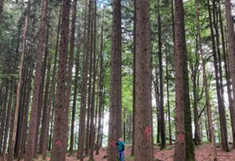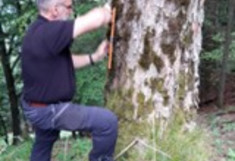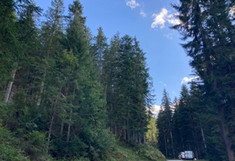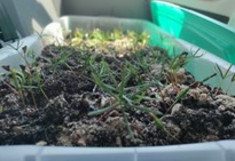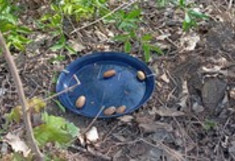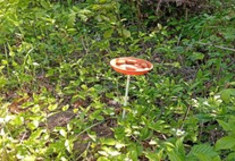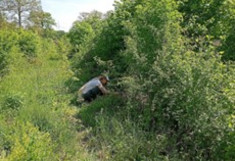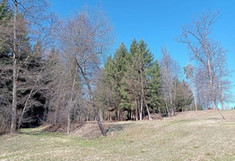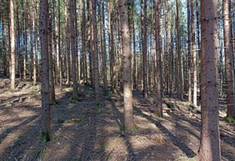FORSEE: Future Seeds for Austria's Forests
FORSEE: : Future Seeds for Climate-Fit Forests in Austria
Project Overview
The FORSEE Project (2021 - 2024) is funded by the Forest Fund Initiative of the Austrian Federal Ministry of Agriculture, Forestry, Regions, and Water Management (BML).
The project is co-led by Georg Gratzer and Mario Pesendorfer, Institute of Forest Ecology.
It is a collaboration between researchers and practitioners at:
- University of Natural Resources, Vienna (BOKU)
- Austrian Research and Training Centre for Forests, Natural Hazards and Landscape (BFW)
- Austrian Federal Forests (ÖBF)
Project Abstract
Austrian forests are experiencing severe climate change impacts, both directly through the shifts of abiotic conditions and habitat suitability, as well as indirectly through the increased frequency and intensity of disturbances such as wind throws and bark beetle outbreaks. Successful restoration of the affected areas will require afforestation or natural recruitment, both of which depend on the quality and quantity of seed production by climate resilient tree species. Because seed production in most temperate forest trees varies strongly over time in a synchronized manner, a phenomenon termed masting, available seed quantities for replanting and natural regeneration vary extensively between years. A forward-looking strategy for the restoration of Austria’s forests therefore requires a thorough understanding of the mechanistic drivers of the quantity and quality of seed production to develop strategies that optimize seed harvests, both in certified seed stands as well as in seed orchards. The goal of this research project is to investigate the drivers of seed production, seed quality and seed genetic diversity of Austria’s forest tree species, to determine the effects of climate change thereon, and to assess strategies that improve the reliability and quality of seeds available for afforestation. The project will test and apply innovative seed orchard management practises to improve seed production for oak and silver fir. Furthermore, natural recruitment dynamics and their limitations throughout the seed and seedling phase will be quantified to evaluate “hands-off” management approaches. The project will aim to include small-scale forest owners, whose seed harvesting efforts could help mitigate national shortages, while their involvement also increases awareness for forest management issues in the changing climate. In close coordination with practitioners, we aim to derive recommendations and methods to increase yields and maintain genetic diversity of seed crops.
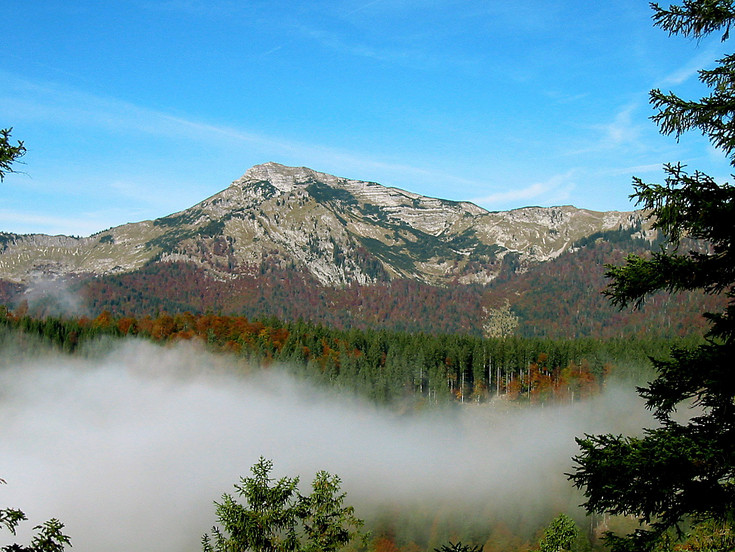
One of the study sites of the FORSEE project: the Rothwald primeval forest in the Wilderness Area Dürrenstein-Lassingtal
Work Packages
Work Package 1: Seed Production, Weather, and Resources in Austrian Forest Trees
Goals
- Assessment and collation of available historical data sources of seed production patterns in Austrian forest trees
- Statistical and mathematical modeling of climate effects on seed production and growth. Projections of climate change effects on these relationships
- Development of a country-wide monitoring concept for seed production
- Explorative research towards annual seed production forecasts (MASTCAST)
Researchers
- Mario Pesendorfer (IFE BOKU)
- Georg Gratzer (IFE BOKU)
- Iris Oberklammer (IFE BOKU)
- Silvio Schüler (BFW)
- Klaus Katzensteiner (IFE BOKU)
- Michael Grabner (IWTRM)
Work Package 2 Interactions between genetic diversity, seed production, and seed quality
Goals
- Effects of source population size variation in harvest stands on seed quality
- Effects of small and fragmented source populations on genetic diversity of (fir) seed crops
- Relationship between genetic diversity and seed quality (germination rate, seedling survival)
- Development of evidence-based recommendations for the evaluation and classification of seed source populations
Researchers
Silvio Schüler (BFW)
Heino Konrad (BFW)
Jerneja Harmel (IFE BOKU)
Marco Lassnig (ÖBF)
Work Package 3 New strategies for plantation management, seed storage, and germinability assessment
Goals
- Experimental manipulation of seed plantation trees to maximize seed quantity and quality
- Optimizing logistics of seed harvest and storage in silver fir and oak seeds
- Optimizing germinability assessment in fir seeds
- Assessing the economic potential of small forest owner‘s seed harvesting
- Monitoring and estimating the demand for forest seeds for Austria‘s climate-fit forests
Researchers
- Heino Konrad (BFW)
- Silvio Schüler (BFW)
- Anton Aigner (BFW)
Work Package 4 The influence of herbivory on the early stages of forest regeneration
Goals
- Exclosure experiments to assess the influence of herbivore guilds on natural regeneration
- Effects of seed crop manipulations on predation preferences of herbivore guilds
- Literature review on potential effects of small herbivores on forest recruitment
- Analysis of (micro-)habitat variables that drive occupancy by small rodent herbivores
Researchers
- Ursula Nopp-Mayr (IWJ BOKU)
- Jasmin Barl (IWJ BOKU)
- Heino Konrad (BFW)
- Georg Gratzer (IFE BOKU)
- Mario Pesendorfer (IFE BOKU)
Work Package 5: The Tree Seed System in Austria
Goals
- Gaining an overview over the structure of the Austrian Tree Seed Economy
- Determining limiting and enhancing factors of converting to tree seed production as an alternative economic model
- Test cases of regional dynamics of the Tree Seed Economy
- Development and distribution of supporting materials, incl. economic calculators for conversion to Tree Seed Economy
Researchers
- Georg Gratzer (IFE BOKU)
- Martina Perzl (IFE BOKU)
- Mario Pesendorfer (IFE BOKU)


